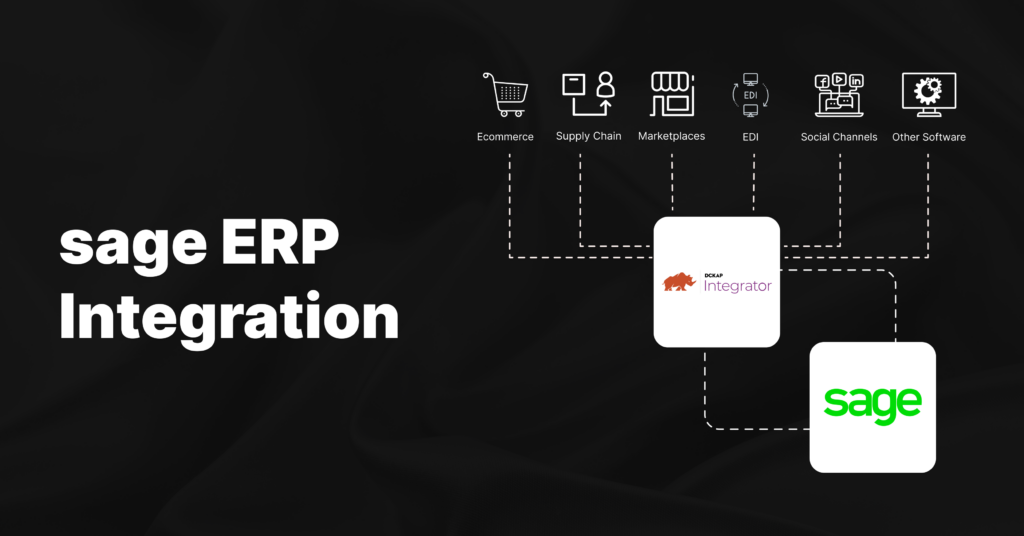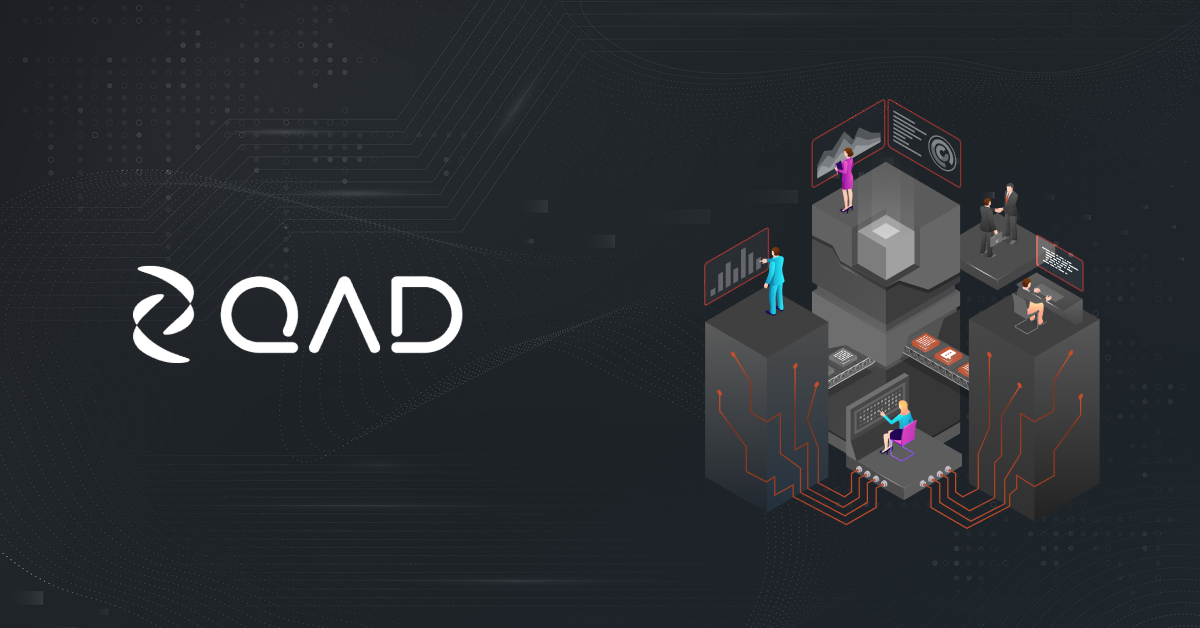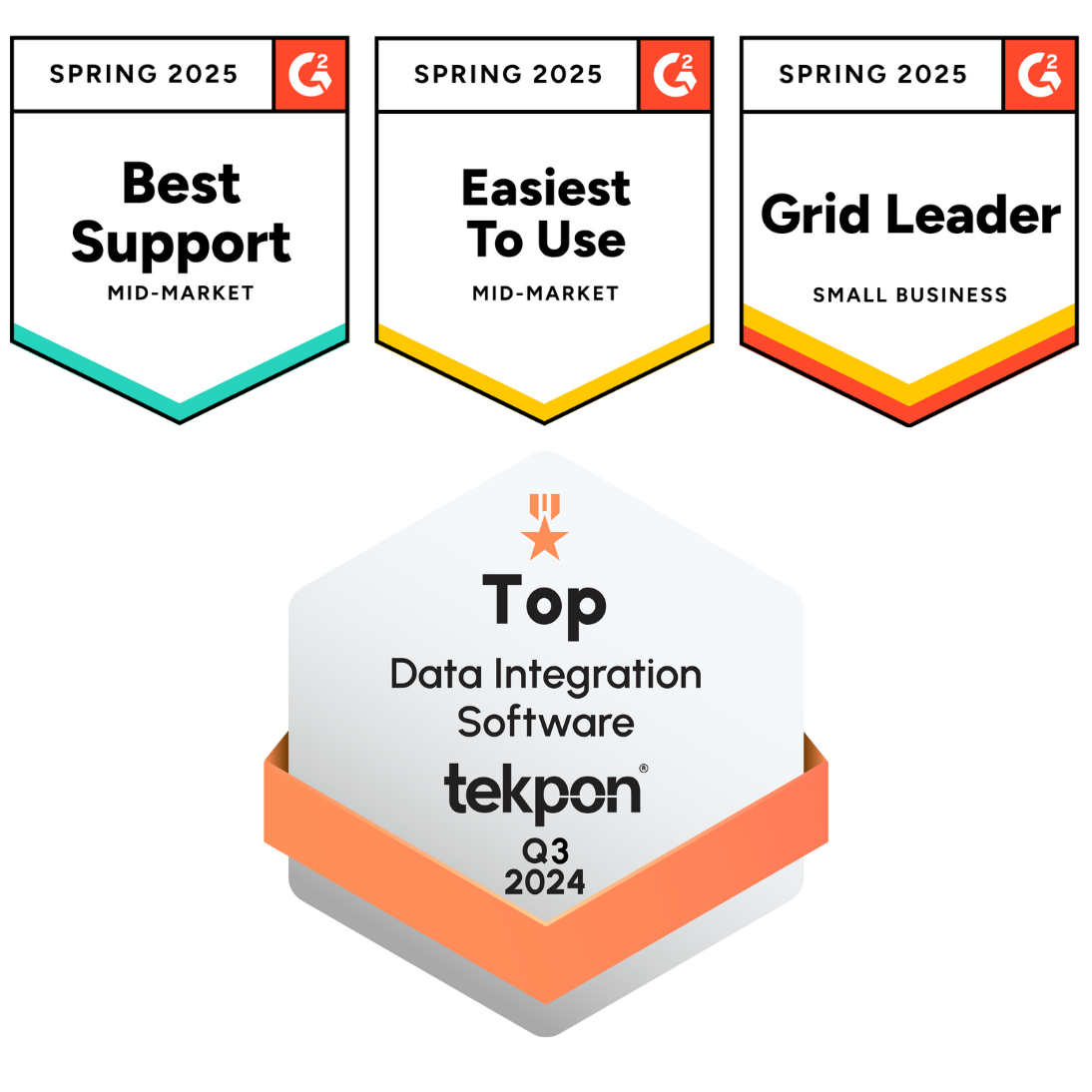Many businesses struggle to align their financial systems with warehouse operations. Fulfillment delays, stock inaccuracies, and rising shipping costs create friction across departments and affect customer experience. As companies scale, add new channels, or work with multiple trading partners, these challenges only increase.
Silo-ed ERPs may not be enough to handle the real-time demands of modern fulfillment, especially when it comes to managing 3PLs or supporting omnichannel operations. That’s why integrating Deposco with your ERP is essential, and this guide will cover everything you need to know as you plan your integration.
Why You Can’t Afford to Ignore Deposco ERP Integration?
ERP systems such as Epicor, NetSuite, SAP Business One, Microsoft Dynamics, and Sage Intacct manage multiple operational processes including procurement, finance, and inventory. But if not connected with the extended tech stack, efficiency can be impacted:
- Teams struggle with real-time updates for required for prompt responses and coordination.
- Fulfillment happens in silos, leading to inaccuracies and lot of difficulty in order tracking.
- Manual work in spreadsheets introduces risks and complaints.
- Stale data impairs supply chain decisions.
Integrating Deposco with your ERP through an integration platform like DCKAP Integrator eliminates these bottlenecks. The result? Unified, comprehensive business processes with streamlined the order fulfillment process and enables smarter, data-driven operations.
This kind of successful integration isn’t just technical—it plays a significant role in defining what modern supply chain mean to brands aiming for growth.
How ERP and Deposco Work Together in Real-World Fulfillment Scenarios: Use Cases
Deposco thrives on fast, accurate execution. But to reach its full potential, it needs to be connected seamlessly to your ERP, offering advantages including the follwing:
1. Order Sync – From ERP to Deposco
As soon as a customer places an order in your shopping cart, the ERP captures it. Within minutes, DCKAP Integrator can transfer the order details, SKUs, quantities, and addresses directly to Deposco’s fulfillment engine.
This fast, automated flow eliminates the need for batch jobs or error-prone manual entries and helps streamline processes.
2. Optimized Fulfillment Execution in Deposco
Warehouse teams use Deposco’s modern solution to guide picking and bin assignments. Integration will update the ERP instantly with pick statuses, damaged goods flags, or exceptions, reducing downtime and enabling AI-powered automation where applicable.
3. Parcel Management and Multi-Carrier Shipping
Deposco evaluates logistics provider options for the best shipping methods. Integrating it with your ERP will push tracking and cost data back to the ERP, ensuring finance, warehouse, and PL services stay in sync.
4. Inventory Sync and Reconciliation
As goods are picked, packed, or returned, Deposco updates real-time counts. When connected with the ERP it will sync those to your ERP, adjusting stock levels and reconciling costs without delay. This process improves planning and lowers the overall cost of operations.
5. Returns & Reverse Logistics
When returns come in, that data would be routed to the appropriate facilities, restocks approved items, and passes return reasons to the ERP via integration. This seamless way of handling reverse logistics enhances customer satisfaction and creates additional benefits.
Practical Considerations Before Integrating Deposco and ERP Systems
Plan Ahead
Connecting your ERP with Deposco isn’t a plug-and-play task; it needs careful planning. This early audit, supported by the vendor (if any), ensures you’re aligning technology capabilities with business outcomes from the start, by helping you evaluate key factors like:
- What are your current processes handling?
- What are the expected outcome of the integration(s)?
- Whether you have the right tools and team in place?
- What other systems, like your ecommerce or CRM, would you also like to connect?
This early assessment ensures your integration is built on a strong foundation, reducing risk and setting you up to get real value from day one.
Define Your Goals
Once the integration feasibility is clear, the next step is to structure the implementation around measurable goals and proven practices, and here they are:
- Define KPIs and Scope: Begin with key performance indicators: order accuracy, shipping time, cost per unit, etc. Tailor the integration to your specific needs and customer trends.
- Plan for Post-Launch Optimization: Leverage maintenance services and ongoing support to monitor sync logs, resolve exceptions quickly, align workflows with performance improvement goals, and stay responsive to new technologies.
Evaluate Your Options
There are a few ways to integrate Deposco with your ERP:
- Pre-built connectors: Deposco’s Bright Socket platform offers pre-built connectors for some major ERP systems like NetSuite. It offers a plug-and-play solution for basic connection needs.
- Customizable integration platform: Companies also consider middleware solutions like DCKAP Integrator that integrate order, shipment, and inventory processing which can then be further integrated with a client’s ERP, accounting, WMS, and shipping systems, or custom API development for unique requirements. This approach is ideal multi-system environments, or custom development for highly specific integration needs.
Setting Up Your Integration
Depending on the method of integration selected, these may be some factors to consider while implementing the integration:
- Change management: To ensure a smoother roll-out of the integration, it helps to have buy-in from the entire team. Good change management allows better roll-out both at the individual and team levels.
- Testing: Once the integration is set up it would need to be tested well before the go-live. This step ensures that any bottlenecks or potential errors can be caught and fixed.
Maintenance & Upkeep
While the best integrations don’t need you to keep thinking about them (just ask our customers!), it is still important to ensure regular upkeep as needed:
- Resources and talent: Plan ahead to ensure resources that can continue to monitor and manage the integration(s). If you’re working with a vendor, check with them. If you’re working with a vendor like DCKAP, we’ll handle this aspect for you even after going live.
- Scaling to add new systems: Plug-and-play connectors may struggle if there is a need to scale the complexity of the integration or add new systems. Using a flexible and scalable integration platform would be a better bet here to prevent future bottlenecks or delays.
Related read: ERP Integration With Other Systems: All You Need To Know
Why DCKAP Integrator For Your Deposco ERP Integration Needs
When Deposco and your ERP are tightly connected, the benefits extend far beyond data movement. You get a fulfillment process that’s faster, more resilient, and better aligned with the expectations of both your team and customers.
- Bidirection syncs at scheduled intervals (as short as five minutes.
- Customizable integrations that match your business requirements and set up.
- Excellent support during the integration set up and more.
- Allows user-based access for improved security and
DCKAP Integrator doesn’t just connect your systems, it keeps everything running smoothly and ready to scale. It reduces manual intervention, handles system differences, and ensures that both your ERP and Deposco speak the same language across thousands of transactions per day.
This enables shorter fulfillment cycles, fewer exceptions and manual fixes, and better data for decision-making across departments.
A Reliable Foundation for Scalable Fulfillment
In a market where speed drives competitive advantage, the way your systems integrate can make or break performance. A Deposco–DCKAP–ERP setup offers more than just technical alignment, it delivers real-time visibility, reduces order processing time, and keeps costs in check.
DCKAP Integrator can make that connection seamless for your team. It enables real-time data flow, supply chain visibility, and a scalable backend that helps businesses move faster and operate smarter. In addition, you can rely on the DCKAP integration team to make any required customizations, and handle the maintenance and updates needed.
Interested to know how that may look for you? Schedule a chat with our team and let’s get your integration live in weeks, not whole months.
FAQs
What is Deposco?
Deposco is a warehouse optimization platform and a super-efficient warehouse management system (WMS) designed to support omnichannel fulfillment solutions, parcel management, and shopping carts across multiple stores and ecommerce inventory management systems.
What does the Deposco Bright Suite include?
- Order Management System: Orchestrates orders from DTC, retail, and B2B channels.
- Warehouse Management: Guides users through picking, shoe fit, lot tracking, and bin assignments.
- Parcel Management: Integrates with multiple carriers to determine the best route and enable multi-carrier shipping system integration.
- Returns Management: Handles RMAs and supports efficient reverse logistics.
- Analytics and Intelligence: Provides AI-powered insights for supply chain visibility and decision-making.
What methods can be used to integration Deposco with ERP?
Two key methods to sync Deposco with your ERP include using the Bright Suite connectors for plug-and-play needs, or an integration platform like DCKAP Integrator for more customizable, multi-system, ERP-first integration method.





